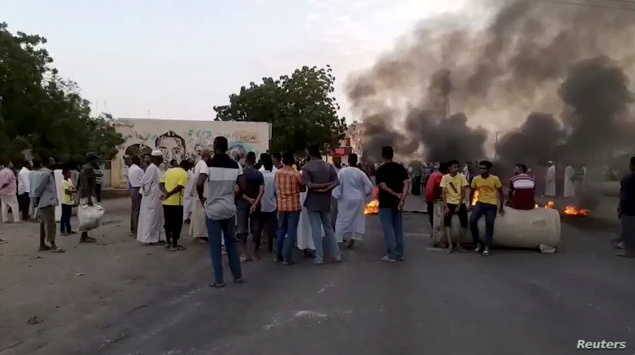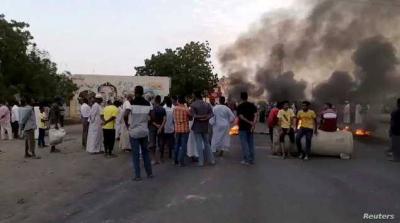Since the highest-ranking general in the Sudanese army announced the takeover of power in the country by dissolving transitional institutions and declaring a state of emergency, the United States has avoided using the term "coup" to describe what happened, preferring to say it is "a military takeover of power." In response to this point raised during his daily briefing on Monday, U.S. State Department spokesperson Ned Price stated, "When such events occur, we do indeed assess and determine whether it is a coup." However, he clarified that Sudan has been subject to military coup restrictions since the 1989 coup by Bashir's regime, pointing out that the United States did not remove Khartoum from this designation, even after the December 2018 uprising that ultimately ousted former president Omar Bashir, who had ruled for 30 years.
Price added that the U.S. administration considers what is happening as "a military takeover of power," noting that "coup is a legal designation used by the U.S. State Department; we are currently not using this term in this case because we recognize that we operate under the designation of coup dating back to 1989." He explained that "the coup restrictions dating from 1989 will remain in effect until the U.S. Secretary of State acknowledges that a democratically elected government has taken power."
According to a report by the U.S. Congress, Sudan is one of the countries under the provisions of section 7008 of the State Department and Foreign Operations Appropriations Act, which categorizes its governance as "military coup." This provision legally obliges the United States to "cease providing assistance to the government of any country whose leader has been ousted by a military coup or by decree following a legitimate election."
Price condemned the steps taken by Sudanese forces, announcing the freezing of $700 million in U.S. assistance that was intended to support the democratic transition in the country, noting that no part of this amount has yet been transferred to Sudan. He affirmed, "We will not hesitate to hold accountable those engaged in violence and diverting Sudan from the path of democracy," adding that "what occurred in Sudan last night is a military takeover of power."
Sudan has witnessed three military coups since its independence from Britain in 1956, led by Ibrahim Abboud in 1959, who remained in power until 1964, Jaafar Nimeiri (1969 to 1985), then Omar Bashir (1989 to 2019). Bashir seized power from an elected government led by Sadiq al-Mahdi, the leader of the Ummah Party and the largest party in Sudan. On April 11, 2019, the Sudanese army ousted Bashir after thousands protested outside the army's headquarters in Khartoum. Subsequently, a Transitional Military Council was formed in the country, but protesters continued their sit-in and denounced it as a "coup."
On June 3, 2019, armed men in military uniforms violently dispersed the sit-in in front of the General Command’s headquarters, resulting in dozens of deaths. An initial military investigation revealed that elements of the Rapid Support Forces (RSF) were involved in the bloodshed. In total, 250 people were reported killed during the suppression of the protests, according to a physicians' committee close to the demonstrators.
On July 17, protest leaders in Sudan and the ruling military council signed a preliminary "political declaration" recognizing the principle of power sharing during a three-year transitional period. The declaration called for the establishment of a "Sovereignty Council" to manage the transitional phase. After negotiations between the two parties, a Sovereignty Council was formed in mid-August, comprising six civilians and five military members, headed by Lieutenant General Abdel Fattah Al-Burhan. Abdullah Hamdok, a former United Nations economic expert, was appointed as the head of the transitional government, which pledged to prepare for democratic elections.




